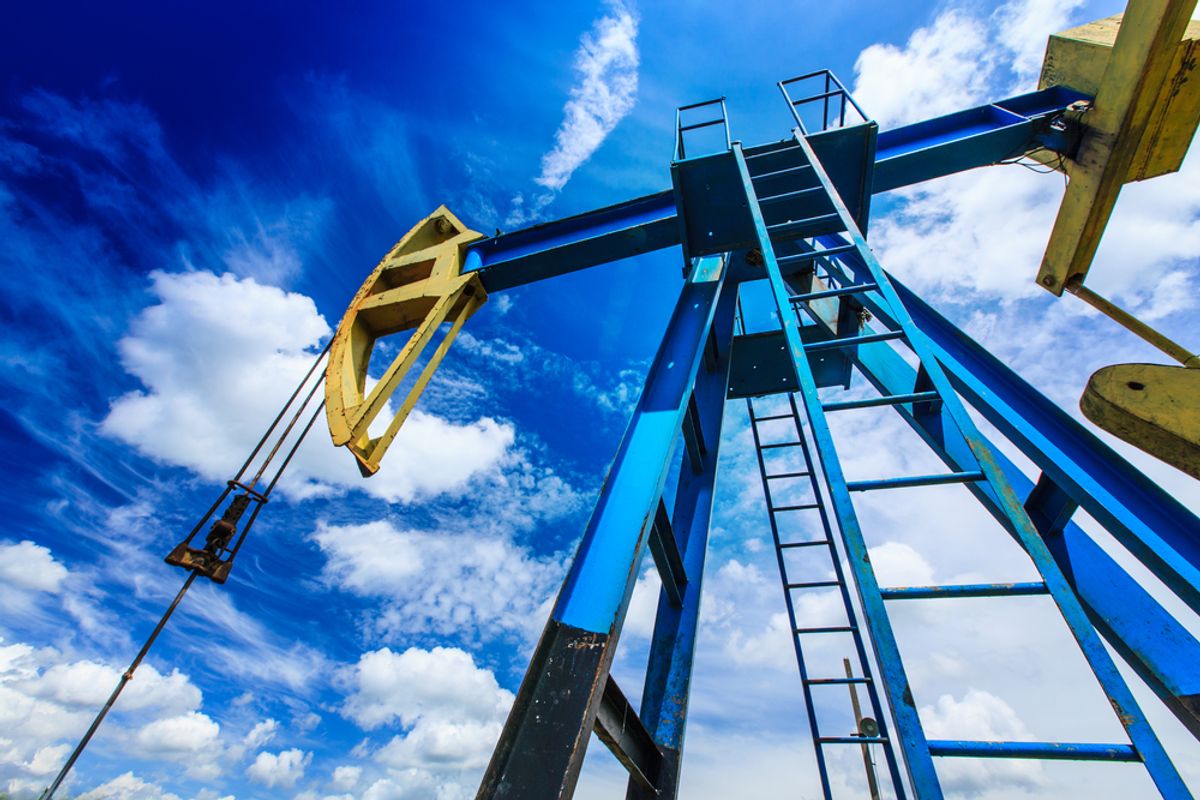The Interior Department Friday afternoon released some long-awaited regulations for hydraulic fracturing, or fracking. They aren't the biggest deal ever -- they only apply to public and Native American lands, which is to say, about ten percent of U.S. fracking operations -- but they are the first such rules to be introduced in more than 30 years (the U.S. fracking boom, for context, took off in 2007).
According to the Hill, the rules are "meant, in part, to ease public fears about a practice that involves pumping fluids miles underground to extract oil and gas from small pockets in rock," which sounds reasonable enough -- especially considering what we know (and still don't know) about the impacts fracking has on public health.
Yet nearly the instant the rules were released, the GOP was on it: 27 Republicans senators introduced a bill intended to block them. (The oil industry is on the attack as well, and two industry groups are already suing the government.)
“This top-down regulation is duplicative, burdensome and ultimately, a direct attack on American energy production, critical tax revenue for our schools and communities, and thousands of good-paying jobs across the nation,” was the not-so-reasonable response of Republican Sen. Steve Daines, of Montana.
“If Interior was half as interested in new production as it is in new regulation, our nation would be in a far better place,” Alaska Republican Sen. Lisa Murkowski, who chairs the Energy and Natural Resources Committee, added.
The Interior Department is characterizing the rules as a compromise ("good for the public...good for industry"). After all, they're still going to allow fracking to take place on public lands, which some environmentalists would prefer not to happen, and they're not as strong as some argue they could be. Here, according to the Bureau of Land Management, is what they include:
- Provisions for ensuring the protection of groundwater supplies by requiring a validation of well integrity and strong cement barriers between the wellbore and water zones through which the wellbore passes;
- Increased transparency by requiring companies to publicly disclose chemicals used in hydraulic fracturing to the Bureau of Land Management through the website FracFocus, within 30 days of completing fracturing operations;
- Higher standards for interim storage of recovered waste fluids from hydraulic fracturing to mitigate risks to air, water and wildlife;
- Measures to lower the risk of cross-well contamination with chemicals and fluids used in the fracturing operation, by requiring companies to submit more detailed information on the geology, depth, and location of preexisting wells to afford the BLM an opportunity to better evaluate and manage unique site characteristics.
”The political reaction is not surprising,” said Interior Secretary Sally Jewell. But "we’re confident from the process we went through that we’re doing the right thing for the American people.”



Shares